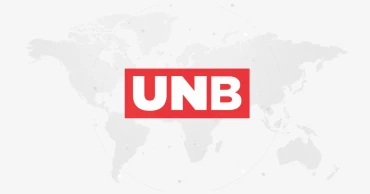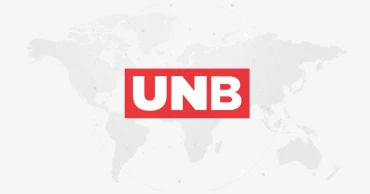Covid-induced lockdown
Inward remittance fell by 21% in 5 months of FY22
Bangladesh received (USD) $1553.70 million inward remittance in November, which is considered lowest in 18 months.
Bangladesh Bank (BB) data shows that the expatriates sent $1553.70 million remittance in November 2021 compared to $2078.74 million in November 2020 amid the Covid-induced lockdown in almost all their host countries.
Read: Bangladesh’s forex reserve expected to thrive on increased remittance inflow
According to the BB, in the first five months (July-November) of the fiscal year (FY) 2021-22, Bangladesh received remittance of $8.61 billion down from $10.89 billion in the FY 2020-21. It means the expatriates’ income has decreased by 21 per cent to $2.28 billion in five month in the current fiscal year.
The expatriate income shows fall for last five months in the current fiscal year despite renewed economic activities in the Middle Eastern and European countries and the USA.
The sector insiders say money transactions on illegal channels (hundi) have increased since the pandemic related restrictions were lifted.
Besides, the rate of new employment has been lower than the job loss.
Read: Bangladesh Bank allows receiving remittances through OPGSPs
The inward remittance inflow of last five months of FY22 saw decreasing trend compared with the same period in the FY21.
Arrival of remittance was $1.87 million in July, $1810.10 million in August, $1726.71 million in September, $1646.87 million in October and $1553.70 million in November of FY22.
In the F21 inward remittance was received $2598.21 million in July, $1963.94 million in August, $2151.05 million in September, $1646.87 million in October and $2078.74 million in November.
4 years ago
Youth fined Tk 20,000 for stalking CU students in Chattogram
A mobile court on Wednesday imposed a fine of Tk 20,000 on a 21-year-old youth for stalking two female students of Chittagong University in the Borodighirpar area of Hathazari upazila.
Assistant Commissioner (land) Sharif Ullah, an executive magistrate, said the female students of CU have been frequenting the area for the past three years for private tuition purposes.
Read:3 arrested over mason's mysterious death in Chattogram
"Some youths of the area have been teasing them on the students on their way to tuition classes for the past couple of months," he said.
On Wednesday too, Rakib, son of Mohammad Emran, along with his friends, stalked the girls as usual. "One of them resisted and an argument broke out between her and the stalkers, prompting her to call police," Sharif said.
Read: Woman stabbed dead in Chattogram
Later, the mobile court, slapped a fine of Tk 20,000 on Rakib.
According to local people, Rakib studies in a college abroad but is currently in his home country of Bangladesh owing to the Covid-induced lockdown.
4 years ago
Cattle markets open in Dhaka amid low arrival, high prices
Amid the Covid-induced lockdown, traders from across the country have started arriving in the capital’s limited cattle markets bringing with them the sacrificial animals they hope to sell ahead of the Eid-ul-Azha festival.
During visits to several markets in the city, the UNB correspondent found the number of cattle still low with traders asking high prices.
Read:10 cattle markets to be set up maintaining health rules: DNCC Mayor
Haat lease-holders, however, hoped the arrival of cattle will gain momentum within the next few days as the Eid festival is still more than a week away.
Shah Alam, leaseholder of Shanir Akhra and Dania College field cattle market, said they have completed preparations so that everyone follows health guidelines to prevent coronavirus infections.
4 years ago
How Bangladesh can boost apparel exports
Bangladesh has so far failed to cash in on the huge market potential for ready-made garments in both developed and emerging economies, if government figures are to be believed.
Last year's Covid-induced lockdown that saw many garment manufacturing units shutting shop further shattered the hopes of the sector. And now the threat of a second outbreak looms large over the industry.
According to the Export Promotion Bureau, Bangladesh’s readymade garment exports stood at Tk 21033.01 million till February this fiscal, 3.73 percent lower than the corresponding period in the previous financial year. Last fiscal's export figure was Tk 21,847.53 million.
However, experts attribute this setback to the sector overall not being competitive enough, and say that if issues like the lack of technological advancement and skilled manpower can be addressed, the readymade garment industry in Bangladesh may witness a rapid revival.
Expanding the product portfolio as per consumer preference is also needed for the sector's turnaround, they say. All these issues if addressed can increase Bangladesh's market share in readymade garment exports up to 10 percent from the existing 6.8 percent by 2025.
Bangladesh’s five basic items are shirts, trousers, jackets, T-shirts and sweaters -- together they make up more than 70 percent of the total readymade garment exports. But these products go to only five countries -- Germany, the US, the UK, France and Spain.
So, market extension is very significant for Bangladesh, say experts, suggesting that like China, Bangladesh also has to go in non-cotton production to increase its market share as there is a huge potential for these items across the world.
Also read: Coronavirus: RMG sector to get loan on 2pc interest
According to the World Trade Statistical Review (WTSR)- 2020, Bangladesh’s global market share in apparel exports stood at 6.8 percent in 2019, which was 6.4 percent in 2018.
“The total market size of the global apparel industry was $411 billion in 2019. Vietnam was the closest competitor of Bangladesh at 6.20 percent share. Besides, India’s market share was 3.5 percent in 2019 while Turkey’s stood at 3.2 percent."
WTSR-2019 data also showed that of the global apparel export market of $421 billion, Bangladesh grasped $32 billion in 2018, which was $29 in 2017. In 2019, China was the top global garment exporter with a 30.8 percent share, followed by the EU and Bangladesh.
Research Director of the Centre for Policy Dialogue (CPD) Khondaker Golam Moazzem told UNB that Bangladesh should produce more diversified products to increase its apparel industry market share across the globe.
“Actually, we export only several basic cotton items. But there is a huge market for non-cotton products across the world. So, Bangladesh has to go in non-cotton products to increase its global market share,” he said.
The economist also called upon the government to provide more "technological" funds to help entrepreneurs improve production of garments to suit the needs of the world.
“We should bring in foreign investors (those who are capable of producing non-cotton products) in our economic zones. The market share won’t increase without value added products. So our capacity needs to be increased alongside infrastructure development."
Underscoring the need for new market extension, the Managing Director of the Giant Group Faruque Hassan said, “If we are elected to the Bangladesh Garment Manufacturers and Exporters Association (BGMEA), we will address the issues plaguing the industry."
Also read: Coronavirus: Experts call for paying attention to apparel sector
"If properly addressed, Bangladesh can increase its market share in readymade garment exports to 10 percent in four years," said the panel leader of Sammilita Parishad.
According to Faruque, Bangladesh's export earnings from the clothing sector decreased to $27 billion in the 2019-20 financial year from $34 billion in the previous fiscal. "We will prioritise diversification and innovation production by adopting the latest technology."
“If our panel gets a chance, we will also work closely with the Bangladesh government and the European Union to retain duty-free market access in the region upto 2031. It’s possible through apparel diplomacy,” he added.
The panel leader also said that they would form a special task force for an effective negotiation with the global trade partners and buyers to help the sector overcome the existing challenges.
“The dominance of cotton products in the fashion industry declined sharply in the last three decades. Besides, nearly 70 percent of the market is captured by man-made fibre. We have only 25 percent of products made of cotton. So, there is a huge opportunity," he said.
"However, we will appoint lobbyists in the US to get duty-free market access for Bangladeshi apparel products if elected. We will also reform customs policy and automate import and export data activities."
Meanwhile, the incumbent BGMEA President Dr Rubana Hug said she would also help strengthen the Bangladesh Garment Manufacturers and Exporters Association (BGMEA).
“If our panel is elected again, we will finish our unfinished work. We have been able to change many things in the sector in the last two years. We will now use our experience to overcome the challenges of the sector," she added.
As Shadhinata Parishad joined with Sammilita Parishad, two panels are contesting this year's BGMEA election. Chairman of Hannan Group ABM Shamsuddin is leading the Forum panel.
4 years ago





